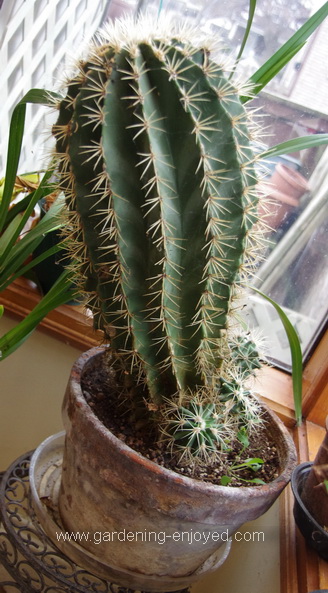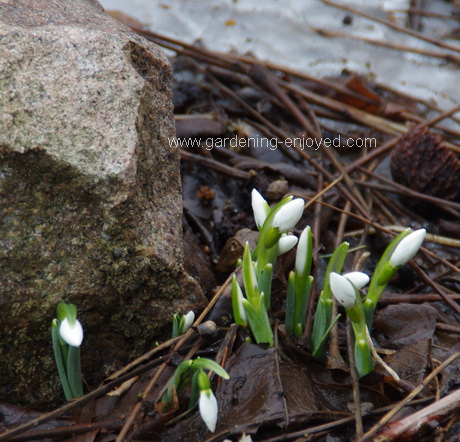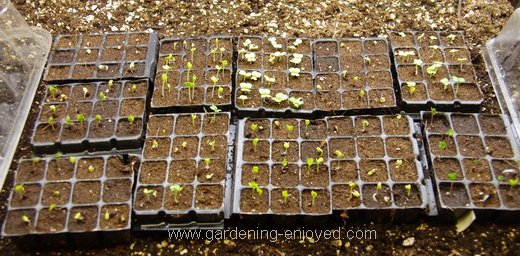| Back to Back Issues Page |
 |
|
Dallying In The Dirt, Issue #336 - A crooked cactus finally approaches the straight and narrow. March 15, 2019 |
 Here is another reason for my delay. I wanted to show you how much this Cactus had started to lean over in its pot and to tell you about straightening it up but there was something about handling it, that I was always able to leave until tomorrow. I finally summoned the courage this week and put on my heaviest leather gloves, went to the garage to get my Cobrahead tool and started to hold it up with one gloved hand while digging in its soil with the Cobrahead. It was amazingly well rooted which made me wonder why it was tipping over so badly. I stood it back as straight as possible and then, using the back side of the Cobrahead in order to stay away from it, packed the soil back down all around its base. It was amazingly dry, which may have been part of the problem, so it was given a thorough watering and a small stake on one side. It looks much less precarious now and I emerged with only a few tiny scratches. Another successful
gardening experience.
Here is another reason for my delay. I wanted to show you how much this Cactus had started to lean over in its pot and to tell you about straightening it up but there was something about handling it, that I was always able to leave until tomorrow. I finally summoned the courage this week and put on my heaviest leather gloves, went to the garage to get my Cobrahead tool and started to hold it up with one gloved hand while digging in its soil with the Cobrahead. It was amazingly well rooted which made me wonder why it was tipping over so badly. I stood it back as straight as possible and then, using the back side of the Cobrahead in order to stay away from it, packed the soil back down all around its base. It was amazingly dry, which may have been part of the problem, so it was given a thorough watering and a small stake on one side. It looks much less precarious now and I emerged with only a few tiny scratches. Another successful
gardening experience.
Several packages of seed just arrived from All America Selections that are their new 2019 winners. I’ve sown the Begonia Viking Red on Chocolate and the Petunia Wave Carmine Velour. No sign of the Begonias as yet but the Petunias have emerged as tiny little seedlings exciting me about the prospect of them cascading out of my planters this summer. Actually I’m most excited about Clancy, a Potato that grows successfully from seed. I’ll be sowing it a little later. Stay tuned for further updates about Clancy. Now it’s time to answer a few of my reader’s questions. To ask a question just “reply” to this ezine. Don’t forget to check the front page of the Website for frequent short ideas for current gardening activities. Dorothy Asks? I have 4 healthy big citrus plants grown
from seeds. Every fall when I bring them in from their summer vacation, they are healthy and lush but soon submit to scale insects. Like you and your orchids, I spend most of my winter months swabbing at them with rubbing alcohol on a q-tip. My question: Is there anything I can do in September to prevent this from happening? |
| Back to Back Issues Page |

